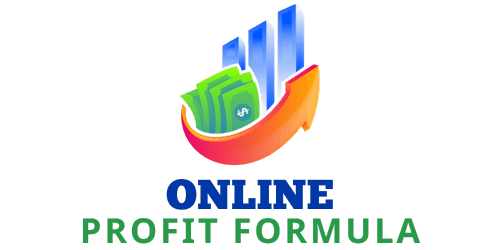In today’s fast-paced digital landscape, online freelancing has become increasingly popular. With the freedom to work from anywhere and the opportunity to be your own boss, it’s no surprise that many individuals are diving into this flexible career path. But what skills are in high demand? Whether you’re a seasoned freelancer or just starting out, it’s crucial to stay updated on the most sought-after skills in the online job market. From digital marketing to web development, this article uncovers the essential skills that can pave the way to freelance success. So, buckle up and discover the skills that will make you stand out in the thriving world of online freelancing!

Web Development
Front-End Development
Front-end development is a crucial aspect of web development that focuses on the visual and interactive elements of a website. As a front-end developer, you will be responsible for creating engaging user interfaces by blending your creative skills with technical expertise. This involves using programming languages such as HTML, CSS, and JavaScript to build the structure, layout, and functionality of websites. By ensuring that the front-end design is well-optimized, user-friendly, and responsive, you will enhance the overall user experience.
Back-End Development
While front-end development deals with the user-facing aspects of a website, back-end development focuses on the behind-the-scenes functionality. As a back-end developer, you will work on the server-side of web development, handling tasks such as database management, server configuration, and application logic. You will be responsible for implementing various programming languages and frameworks like PHP, Python, Node.js, and Ruby on Rails. Back-end development ensures that the website or web application runs smoothly, performs efficiently, and securely manages user data.
Full Stack Development
Full stack development combines both front-end and back-end development skills. As a full stack developer, you will have a comprehensive understanding of both the user interface and the server-side aspects of web development. This versatility allows you to handle various tasks confidently and independently. You will be proficient in both front-end technologies like HTML, CSS, and JavaScript, as well as back-end languages such as PHP, Ruby, or Python. Full stack development offers the advantage of being able to handle the entire web development process from start to finish.
Responsive Design
With the significant increase in mobile device usage, responsive design has become an essential skill for web developers. Responsive design ensures that websites adapt and display correctly on different screen sizes and devices. By using techniques like fluid grids, flexible images, and media queries, you can create websites that provide an optimized viewing experience regardless of the device being used. Responsive design ensures that users can easily navigate and interact with a website, which is crucial for attracting and retaining visitors.
UI/UX Design
UI (User Interface) and UX (User Experience) design play a crucial role in creating visually appealing and user-friendly websites and applications. As a UI/UX designer, you will focus on understanding user behavior, designing intuitive interfaces, and creating meaningful interactions. Your goal is to enhance the usability and satisfaction of users by ensuring that the design elements, such as colors, typography, and layout, are aesthetically pleasing and easy to navigate. By considering user feedback and conducting usability testing, you can continuously improve the overall user experience.
WordPress Development
WordPress is one of the most popular content management systems (CMS) used for building websites and blogs. As a WordPress developer, you will have the skills to create and customize themes, plugins, and templates to meet specific client requirements. You will be proficient in PHP, CSS, and JavaScript as these are the primary programming languages used in WordPress development. With WordPress’s flexibility and extensive range of plugins, you can create dynamic and interactive websites that are highly customizable and user-friendly.
Graphic Design
Logo Design
Logo design is a specialized skill that involves creating unique and memorable visual representations of a company or brand. As a logo designer, you will work closely with clients to understand their brand identity and create a logo that effectively communicates their values and resonates with their target audience. You will utilize your artistic and creative abilities to design logos that are visually appealing, timeless, and versatile. A well-designed logo can significantly impact a company’s branding efforts and leave a lasting impression on customers.
Branding
Branding goes beyond just a logo; it encompasses the overall identity and personality of a company. As a branding specialist, you will create a cohesive and consistent brand image that resonates with the target market. This involves developing a brand strategy, selecting appropriate brand colors, typography, and other design elements. Through strategic positioning and effective messaging, you will establish a unique brand identity that differentiates your client’s business from competitors and builds brand loyalty.
Print Design
Print design involves creating visual materials that will be printed and distributed physically. This can include designing brochures, business cards, flyers, posters, and other promotional materials. As a print designer, you will need to consider factors such as layout, typography, and color choice to ensure that the design effectively communicates the intended message and captures the attention of the target audience. Attention to detail and print production knowledge are essential to ensure that the final printed materials meet the desired quality standards.
Illustration
Illustration is a skill that combines artistic talent with the ability to visually represent ideas or concepts. As an illustrator, you will create original artwork that accompanies various media, such as books, magazines, websites, and advertisements. Your illustrations can be hand-drawn or created digitally using specialized software. By using colors, textures, and composition, you will bring stories and ideas to life and enhance visual communication.
Packaging Design
Packaging design plays a crucial role in attracting consumers and creating a positive brand image. As a packaging designer, you will create visually appealing and functional packaging solutions for products. You will consider factors such as packaging structure, materials, and graphics to ensure that the design effectively communicates the product’s key features and benefits. A well-designed package can significantly influence consumers’ purchasing decisions and create a memorable brand experience.
User Interface (UI) Design
User Interface (UI) design focuses on creating visually appealing and user-friendly interfaces for software applications and websites. As a UI designer, you will collaborate with UX designers to understand user needs and translate them into intuitive and visually engaging designs. You will utilize design principles, typography, color theory, and other elements to create interfaces that effectively guide users and enhance their overall experience. Your goal is to create interfaces that are aesthetically pleasing, visually coherent, and easy to navigate.

Digital Marketing
Search Engine Optimization (SEO)
Search Engine Optimization (SEO) is a critical skill for digital marketers, as it involves optimizing websites to increase visibility in search engine results. By utilizing various SEO techniques, such as keyword research, on-page optimization, and link building, you can improve a website’s rankings and drive organic traffic. SEO ensures that the website follows search engine guidelines, making it easier for search engines to understand and rank the content.
Social Media Marketing
Social media marketing involves using social media platforms to promote products or services and engage with the target audience. As a social media marketer, you will develop strategies to create and curate content that aligns with the brand’s identity and resonates with the target audience. By analyzing metrics and user engagement, you can refine your social media strategies and optimize your campaigns. Social media marketing allows businesses to reach a wider audience, increase brand awareness, and drive conversions.
Content Marketing
Content marketing focuses on creating and distributing valuable and relevant content to attract and retain a target audience. As a content marketer, you will develop content strategies, create engaging blog posts, articles, videos, and social media content. By understanding your target audience’s needs and interests, you can create content that provides value and establishes your client’s authority in their industry. Content marketing builds brand credibility, generates leads, and fosters long-term customer relationships.
Email Marketing
Email marketing involves using email campaigns to communicate with the target audience and nurture leads. As an email marketer, you will design and create compelling email content that encourages engagement, such as newsletters, promotional offers, and personalized email sequences. By segmenting the audience and utilizing automation tools, you can send targeted emails that are tailored to specific customer interests or behaviors. Email marketing is a cost-effective way to build brand loyalty, generate leads, and drive conversions.
Pay-per-Click (PPC) Advertising
Pay-per-Click (PPC) advertising is a digital marketing strategy that involves placing targeted ads on search engines or other advertising platforms. As a PPC advertiser, you will create and manage ad campaigns, conduct keyword research, and optimize ad copy to maximize click-through rates and conversions. By utilizing data analytics and performance tracking tools, you can analyze campaign results and make data-driven decisions to improve ad performance and return on investment.
Google Analytics
Google Analytics is a powerful web analytics tool that provides insights into website traffic, user behavior, and campaign performance. As a digital marketer, proficiency in Google Analytics allows you to track key metrics, identify trends, and make data-driven decisions. By utilizing the data provided by Google Analytics, you can optimize website performance, measure the success of marketing campaigns, and gain a deeper understanding of your target audience.
Content Writing
Blog Writing
Blog writing involves creating engaging and informative content for blogs and websites. As a blog writer, you will develop topics, conduct research, and write articles that resonate with the target audience. By utilizing SEO techniques and incorporating relevant keywords, you can increase the visibility of the blog posts in search engine results. Blog writing helps businesses establish their authority, engage with their audience, and drive organic traffic to their website.
Copywriting
Copywriting involves creating persuasive and compelling written content that motivates readers to take a specific action. As a copywriter, you will utilize your creativity and communication skills to craft captivating headlines, taglines, and sales copy. Your goal is to effectively communicate the benefits of a product or service, evoke emotion or curiosity, and prompt readers to engage or make a purchase. Copywriting plays a crucial role in marketing campaigns, advertisements, and website content.
Editing and Proofreading
Editing and proofreading are essential skills for ensuring the accuracy and clarity of written content. As an editor or proofreader, you will review and correct grammatical errors, spelling mistakes, and inconsistencies in written work. Your attention to detail and knowledge of grammar and style guidelines will ensure that the content is polished, professional, and easy to understand. Editing and proofreading are crucial in maintaining the credibility and professionalism of written materials.
Technical Writing
Technical writing involves creating clear and concise documentation for complex topics or processes. As a technical writer, you will communicate technical information in a way that is understandable to the target audience. This could include writing user manuals, product documentation, or instructional guides. Your ability to simplify complex concepts and organize information effectively will help users navigate and understand technical information.
Ghostwriting
Ghostwriting involves writing content on behalf of someone else who takes credit for the work. As a ghostwriter, you will utilize your writing skills and research abilities to create original content that aligns with the client’s voice and objectives. Ghostwriting can cover a wide range of content types, including blog posts, articles, social media content, and books. Your ability to adapt to different writing styles and communicate the client’s message effectively will be crucial in this role.
Article Writing
Article writing involves creating well-researched and informative content for various publications. As an article writer, you will conduct in-depth research on a specific topic, organize information, and present it in a comprehensive and engaging manner. Your ability to captivate readers and deliver accurate and valuable information will be essential in creating compelling articles. Article writing allows you to explore different subjects and industries, showcase your expertise, and reach a wider audience.

Social Media Management
Content Creation
Content creation plays a crucial role in social media management. As a social media manager, you will develop a content strategy that aligns with the client’s brand and objectives. This involves creating engaging and visually appealing content, such as images, videos, and infographics, that resonates with the target audience. By utilizing content creation tools and staying up-to-date with industry trends, you can consistently produce high-quality content that generates user engagement and brand awareness.
Audience Engagement
Audience engagement is the key to building a strong social media presence. As a social media manager, you will actively engage with the audience by responding to comments, messages, and feedback. By fostering a sense of community and providing valuable content, you can encourage conversations, increase brand loyalty, and expand the reach of the client’s social media accounts. Audience engagement requires excellent communication skills, empathy, and the ability to effectively represent the brand’s voice.
Social Media Analytics
Social media analytics involves analyzing data and metrics to measure the performance and effectiveness of social media campaigns. As a social media manager, you will utilize analytics tools to track metrics such as reach, engagement, and conversions. By analyzing the data, you can identify patterns, trends, and areas for improvement. Social media analytics enables you to make data-driven decisions, refine your social media strategies, and optimize your efforts to achieve the client’s objectives.
Social Media Advertising
Social media advertising involves creating and managing paid ad campaigns on social media platforms. As a social media advertiser, you will develop targeted ads, define audience segments, and set advertising budgets. By utilizing demographic and behavioral data, you can ensure that the ads reach the right audience and achieve the desired objectives, such as brand awareness, lead generation, or conversions. Social media advertising offers advanced targeting options, real-time analytics, and the ability to reach a large audience at a relatively low cost.
Community Management
Community management involves nurturing and growing a community of followers and supporters on social media platforms. As a community manager, you will focus on building relationships, providing support, and fostering a sense of belonging among the community members. By moderating discussions, resolving conflicts, and organizing online events or campaigns, you can create a positive and engaging environment. Community management helps businesses build brand loyalty, generate user-generated content, and gain valuable insights from their audience.
Influencer Marketing
Influencer marketing involves collaborating with influential individuals or social media personalities to promote products or services. As an influencer marketer, you will identify relevant influencers, establish partnerships, and develop campaigns that align with the client’s brand. By leveraging the influencers’ credibility and reach, you can tap into their trusted relationship with their audience and increase the client’s brand exposure and credibility. Influencer marketing allows businesses to reach a targeted audience and gain valuable endorsements.
Translation Services
Language Pair Expertise
Language pair expertise refers to the ability to translate from one language to another accurately and fluently. As a translator, you will be proficient in at least two languages, with a deep understanding of grammar, vocabulary, and cultural nuances. Language pair expertise allows you to effectively convey the original meaning and tone of the source text into the target language, ensuring accuracy and localization.
Transcription
Transcription involves converting spoken audio or video content into written text. As a transcriptionist, you will listen to recordings and transcribe the content, ensuring accuracy and clarity. This skill is essential for various industries, such as legal, medical, or media, where accurate and detailed written records are necessary. Transcription requires excellent listening skills, attention to detail, and the ability to work efficiently and accurately.
Localization
Localization refers to adapting content to suit a specific target audience or market. As a localization specialist, you will consider cultural, linguistic, and regional differences to ensure that the content resonates with the target audience. This can involve translating, modifying graphics, adapting design elements, and even redesigning user interfaces. Localization is crucial for businesses that aim to expand their reach and effectively engage with diverse markets.
Interpretation
Interpretation involves orally translating spoken language in real-time. As an interpreter, you will listen to a speaker and simultaneously convey the message in another language. This skill is particularly important in settings such as conferences, meetings, or courtrooms, where immediate translation is required. Interpretation requires strong language proficiency, excellent listening and memory skills, and the ability to think quickly and accurately.
Proofreading and Editing
Proofreading and editing involve reviewing written content to identify and correct errors in grammar, spelling, punctuation, and style. As a proofreader or editor, you will ensure that the document is free from typos, inconsistencies, and inaccuracies. Your attention to detail, strong command of language, and knowledge of style guidelines will ensure that the final content is polished and professional.
Subtitling
Subtitling involves adding captions or subtitles to video content to provide translations or convey additional information. As a subtitler, you will accurately translate spoken dialogue and synchronize the subtitles with the video. Subtitling requires linguistic skills, knowledge of timing and synchronization, and attention to detail. Accurate subtitling enhances accessibility and allows audiences from different languages or with hearing impairments to enjoy video content.
Video Editing
Trimming and Cutting
Trimming and cutting involve removing unwanted footage and refining the timing of video clips. As a video editor, you will ensure that the video flows smoothly, maintains a desired pace, and effectively communicates the message. By using editing software, you can trim, split, and rearrange clips to create a cohesive and engaging video.
Color Correction
Color correction involves adjusting the colors and tones of video footage to create a desired visual style. As a video editor, you will enhance the colors, correct white balance, and adjust contrast and saturation. Color correction allows you to create a consistent and visually appealing look throughout the video.
Sound Design
Sound design involves creating and editing audio elements to enhance the overall audio experience of a video. As a video editor, you will adjust volume levels, add background music, and synchronize audio with video footage. Sound design plays a crucial role in creating a captivating and immersive video experience.
Motion Graphics
Motion graphics involve creating animated elements, such as text, shapes, or graphics, to enhance the visual storytelling of a video. As a video editor, you will utilize motion graphics software to add dynamic and visually appealing elements that engage the viewers and convey information more effectively.
Special Effects
Special effects involve adding visual elements that are not naturally present during video recording. As a video editor, you will use software to create or enhance effects such as explosions, animations, or 3D elements. Special effects can bring imagination to life and add an extra layer of visual interest to the video.
Video Transitions
Video transitions involve blending one video clip into another seamlessly. As a video editor, you will utilize various transition techniques such as fades, wipes, or dissolves to create smooth transitions between different scenes or shots. Transitions create a cohesive and professional flow in the video.
Virtual Assistance
Administrative Support
Administrative support involves providing a range of administrative tasks to assist businesses or individuals in their day-to-day operations. As a virtual assistant, you will handle tasks such as email management, calendar scheduling, file organization, data entry, and general clerical work. Your organizational skills, attention to detail, and ability to work independently will ensure that tasks are completed efficiently and accurately.
Email Management
Email management involves organizing and responding to emails on behalf of a client. As a virtual assistant, you will filter and prioritize emails, draft responses, and ensure that the client’s inbox is well-maintained and organized. Effective email management helps streamline communication, improves productivity, and ensures that important messages are attended to promptly.
Calendar Scheduling
Calendar scheduling involves managing and organizing appointments, meetings, and events for clients. As a virtual assistant, you will coordinate schedules, send meeting invitations, and handle any changes or conflicts. Calendar scheduling ensures that the client’s time is optimized, deadlines are met, and important events are not overlooked.
Data Entry
Data entry involves accurately inputting data into computer systems or databases. As a virtual assistant, you will handle tasks such as entering customer information, updating spreadsheets, or transcribing data from physical documents. Your attention to detail, typing speed, and accuracy will ensure that data is entered efficiently and correctly.
Research
Research skills are essential for gathering and analyzing information on various topics. As a virtual assistant, you will conduct research to gather data, find relevant resources, or provide insights to clients. By utilizing online databases, search engines, and other research tools, you can provide accurate and valuable information to assist in decision-making or content creation.
Customer Support
Customer support involves assisting customers with inquiries, issues, or complaints. As a virtual assistant, you will handle customer interactions through various channels such as chat, email, or phone. Your ability to empathize, communicate effectively, and provide timely and accurate responses will ensure that customers receive the support they need and maintain a positive perception of the business.
Mobile App Development
iOS App Development
iOS app development involves creating mobile applications specifically for Apple’s iOS platform. As an iOS app developer, you will be proficient in programming languages such as Swift or Objective-C and utilize development tools and frameworks provided by Apple. iOS app development requires attention to detail, adherence to Apple’s design guidelines, and the ability to create user-friendly and optimized applications for Apple devices.
Android App Development
Android app development involves creating mobile applications for devices that run on the Android operating system. As an Android app developer, you will utilize programming languages such as Java or Kotlin and leverage development tools and frameworks provided by Google. Android app development requires adaptability, compatibility across various devices, and the ability to create user-friendly and visually appealing applications for the Android platform.
Cross-Platform Development
Cross-platform development involves creating mobile applications that can run on multiple platforms, such as iOS and Android. As a cross-platform developer, you will utilize frameworks such as React Native, Flutter, or Xamarin to write code once and deploy it across different operating systems. Cross-platform development offers the advantage of cost-effectiveness, code reusability, and faster development cycles.
User Interface Design
User Interface (UI) design in mobile app development focuses on creating visually appealing and user-friendly interfaces. As a UI designer, you will work closely with developers and UX designers to ensure that the mobile app’s interface is intuitive, visually consistent, and optimized for mobile devices. By utilizing design principles, prototyping tools, and user feedback, you can create an engaging and seamless user experience.
Prototyping
Prototyping involves creating interactive and functional prototypes of mobile applications to test and refine the user experience. As a mobile app developer, you will utilize prototyping tools and frameworks to build prototypes that simulate the app’s functionality and flow. Prototyping allows clients and stakeholders to provide feedback and make informed decisions before moving forward with full app development.
App Testing and Debugging
App testing and debugging involve systematically identifying, reporting, and fixing issues or bugs in the mobile application. As a mobile app developer, you will utilize various testing techniques and tools to ensure that the app functions correctly, performs efficiently, and is free from errors. Thorough testing and debugging are crucial to ensure that the app delivers a seamless and reliable user experience.
SEO Writing
Keyword Research
Keyword research involves identifying and selecting relevant keywords and phrases to optimize content for search engine rankings. As an SEO writer, you will utilize keyword research tools to identify high-volume and low-competition keywords that align with the client’s objectives. By incorporating these keywords strategically and naturally into the content, you can increase its visibility and attract organic traffic.
On-Page Optimization
On-page optimization involves optimizing various elements on a webpage to improve its search engine visibility. As an SEO writer, you will optimize elements such as title tags, meta descriptions, heading tags, and URL structures. By strategically incorporating keywords and implementing best practices, you can improve the webpage’s ranking potential and make it more search engine friendly.
Meta Tags and Descriptions
Meta tags and descriptions provide snippets of information that appear in search engine results. As an SEO writer, you will optimize the meta tags and descriptions by incorporating relevant keywords and creating concise and compelling summaries of the webpage’s content. Well-optimized meta tags and descriptions can increase the click-through rate and drive organic traffic.
Link Building
Link building involves acquiring backlinks from external websites to improve a webpage’s authority and search engine rankings. As an SEO writer, you will create high-quality and relevant content that attracts natural backlinks. By incorporating link building strategies, such as guest posting, outreach, or content promotion, you can increase the visibility and credibility of the webpage.
SEO Content Writing
SEO content writing involves creating content that is optimized for search engine rankings. As an SEO writer, you will incorporate relevant keywords, utilize proper formatting, and provide valuable and informative content. By aligning the content with the target audience’s needs, you can improve search engine visibility and attract organic traffic.
Competitor Analysis
Competitor analysis involves researching and analyzing the strategies, content, and performance of competitors in the search engine rankings. As an SEO writer, you will identify your client’s direct competitors, analyze their keywords, backlinks, and content quality, and gain insights into their strengths and weaknesses. Competitor analysis allows you to identify opportunities, refine your SEO strategies, and differentiate your client’s content in the crowded digital landscape.
In conclusion, online freelancing offers a wide range of in-demand skills across various industries. Whether you are interested in web development, graphic design, digital marketing, content writing, social media management, translation services, video editing, virtual assistance, mobile app development, or SEO writing, there are endless opportunities to showcase your skills and thrive in the online freelancing world. By honing your expertise, staying up-to-date with industry trends, and continuously refining your craft, you can position yourself as a valuable asset to clients and build a successful freelancing career.

